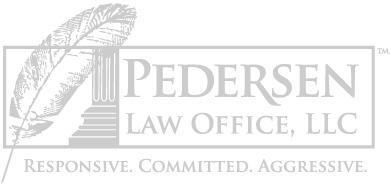Wisconsin Probate Timeline: A Guide for Personal Representatives
Nov 24, 2025

Consultation with Attorney (Weeks 1-4)
Meeting with an experienced probate attorney is an important first step in understanding whether your loved one’s estate needs to go through probate. At this initial consultation, it helps to bring any estate planning documents, the death certificate, a list of assets and debts, and contact information for all heirs. The attorney will carefully review these materials and discuss how the estate should be handled, including which assets are subject to probate. For instance, jointly owned property, accounts with named beneficiaries, or assets held in a trust can avoid the probate process. Once it is determined that your loved one’s estate qualifies for informal probate, the attorney will explain your responsibilities, answer your questions, and begin gathering the information needed to prepare the legal documents that start the probate case.
Filing the Probate Case (Weeks 4-5)
After you meet with the attorney to review and sign the initial probate documents, they are filed with the probate court. If there is a will, the original must be submitted to the court. If there is no will, waivers must be obtained from all heirs. Once all required documents are filed and reviewed, the court will issue Domiciliary Letters. These official documents appoint you as the Personal Representative and give you legal authority to act on behalf of the estate. With this authority, you can open an estate bank account, pay bills and manage assets. At the same time, your attorney will apply for an Employer Identification Number (EIN) from the IRS, which is necessary to open the estate’s bank account and to file any required tax returns.
Notifying Creditors (Weeks 4–8)
As Personal Representative, you are responsible for making sure heirs, beneficiaries, and creditors are properly notified that the estate has been opened. Wisconsin law also requires that a Notice to Creditors be published in a local newspaper for three consecutive weeks. This alerts potential creditors that the estate is open and gives them four months to file a claim against the estate. Your attorney will take care of sending notices, arranging the publication, and keeping track of the deadlines. If a creditor does not file within the allowed time, they may lose the right to collect. Your attorney will also file proof of service and publication with the court and can object to any claims that are late or improper, helping protect the estate’s assets.
Preparing and Filing the Inventory (Months 2–5)
You are required to file an estate inventory with the probate court within six months of opening the case. The inventory is a detailed list of everything your loved one owned that is subject to probate at the time of death. Common examples include bank accounts, real estate, vehicles, and personal property. Each item must be listed with a fair market value and should also note any outstanding debts such as mortgages. Once completed, the inventory is filed with the court to give everyone a clear picture of the estate’s value and ensuring that later distributions are fair. Your attorney will help you prepare the inventory of the estate to ensure it is accurate and complete. If additional assets are discovered later, an Amended Inventory needs to be filed.
Managing Assets, Paying Debts, and Filing Taxes (Months 4–10)
As personal representative, you are responsible for managing assets and paying debts of the estate. This includes funeral expenses, legal fees, taxes, and any valid creditor claims. Your attorney will guide you in identifying legitimate debts and when to make payments from the estate’s funds. You may also need to file federal and state income tax returns for the estate, especially if it earns income after the date of death. Your attorney and an accountant can assist with this. If the estate is required to file tax returns, the probate process may take longer to allow time for filing, processing, and handling any refunds or payments due. Throughout this stage, it is important to keep careful records of every deposit and payment, since these records will form the basis of the final accounting.
Distributing Assets and Final Accounting (Months 10–14)
Once all debts and taxes are paid, you can begin distributing assets to beneficiaries or heirs when instructed by your attorney. This must be done according to the will or, if there is no will, according to Wisconsin’s intestacy laws. Your attorney will help ensure distributions are made correctly and documented properly with estate receipts. Your attorney will then prepare a Final Estate Account which shows all income, expenses and distributions made during the probate process and provide a copy to all heirs and beneficiaries.
Closing the Estate (Months 12–18)
To officially close the estate several final documents must be filed with the court. These include all Estate Receipts, confirming all legitimate debts have been paid and all beneficiaries or heirs have received their inheritance. The Statement of Personal Representative is also required, showing all your duties have been completed. In addition, a Closing Certificate from the Wisconsin Department of Revenue must be obtained to verify all taxes owed by the estate have been paid. Once these documents are approved, the estate is officially closed and your responsibilities as Personal Representative are complete.
Length of Probate Process
Most informal probate cases in Wisconsin are completed within twelve to eighteen months, though delays can occur. Sometimes delays happen when real estate needs to be sold, tax issues take longer to resolve, or when the personal representative faces challenges completing required duties. If delays occur, your attorney can file a Petition and Order to Extend Time, which allows the estate additional time. Difficulties can be managed effectively by having the guidance of an experienced probate attorney.
FREE CONSULTATIONS
Navigating the probate process in Wisconsin can feel overwhelming, especially during a time of loss. At Pedersen Law Office, LLC, we understand how stressful this experience can be, which is why we offer free consultations. We take the time to meet with you personally, learn about your unique circumstances, and clearly explain what needs to be done and how we can guide you through each step. Our firm proudly serves families in Appleton, Menasha, Oshkosh, Green Bay, and the surrounding communities.
